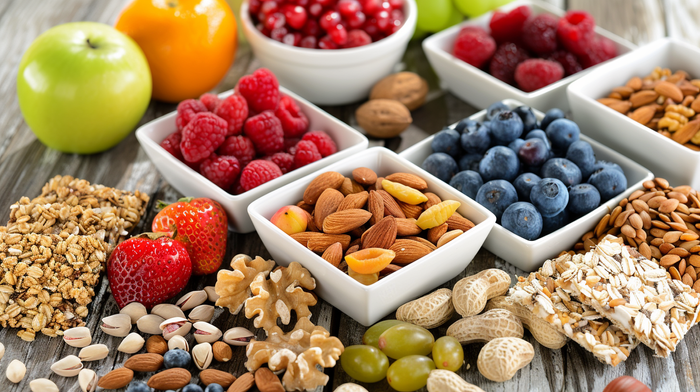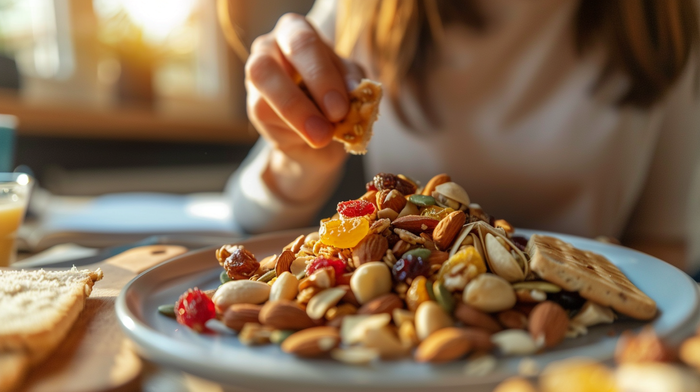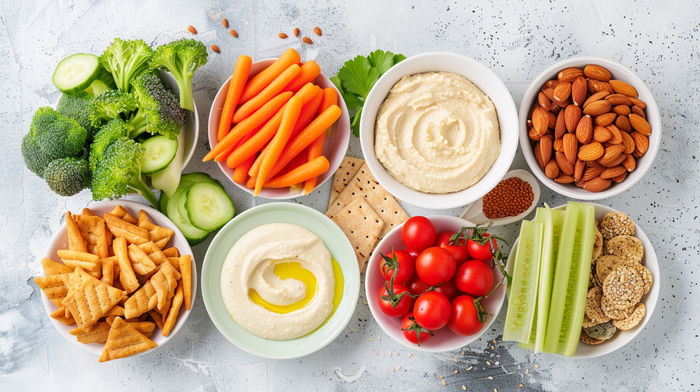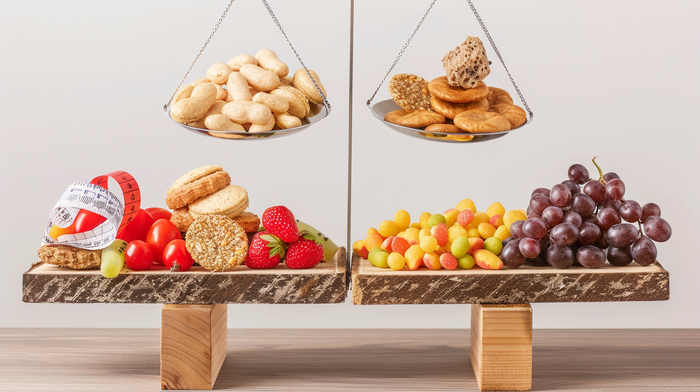Can snacking be part of a healthy diet? We dispel the myths
Snacking is often associated with unhealthy food that harms our diet and figure. However, are all snacks really bad? Or can properly selected ones become a valuable part of a healthy diet? In this article we will dispel myths about snacks and show how they can support a healthy diet.

The role of snacks in a healthy diet
Snacks, if chosen well, can serve many important functions in our diet. First, they help maintain a steady level of energy throughout the day, preventing sudden drops in blood sugar and associated fatigue or irritability. Second, they can help increase our intake of essential nutrients, such as vitamins, minerals, protein, and fiber, especially if our main meals are less varied.

What snacks to choose?
When choosing snacks, it is worth paying attention to several key aspects. First and foremost, they should be nutrient-rich - containing vitamins, minerals, protein, fiber - while being low in empty calories, i.e. those that provide energy but little nutritional value. Good examples include fresh fruits, vegetables with hummus, natural yogurt with nuts or seeds, whole-grain sandwiches with lean meat or vegetables.
- Fresh fruit - rich in vitamins and fiber
- Vegetables with hummus - provide protein and fiber
- Natural yogurt with nuts - a source of protein and healthy fats
- Whole grain sandwiches - provide fiber and nutrients

Myths about snacks
Many myths have grown up around the topic of snacking. One of the most common is the belief that all snacks are unhealthy. This is not true, as many of them can provide the body with valuable nutrients. Another myth is the belief that eating between meals leads to weight gain. In fact, properly chosen snacks can help control appetite and prevent overeating during main meals.
Snacks vs. weight control
Healthy snacks can be helpful in maintaining proper body weight. Thanks to them, we can avoid feeling hungry between meals, which often leads to uncontrollable snacking. Moreover, snacks rich in protein and fiber provide a longer feeling of satiety, which can help reduce the overall amount of calories consumed. However, it is important to keep moderation in mind and not replace full meals with them.

Tips for healthy snacking
To ensure that snacking actually supports a healthy diet, it's worth remembering a few rules. First, plan your snacks in advance - this will help you avoid reaching for unhealthy options in a moment of hunger. Second, always read product labels to avoid those with high amounts of sugar, salt or unnatural additives. Third, keep healthy snacks in plain sight - if you have fresh fruit or nuts on hand, it will be easier to reach for them than for less healthy alternatives.
- Plan snacks in advance
- Read product labels
- Keep healthy snacks visible

Summary
Snacks do not have to be the enemy of a healthy diet. By choosing those rich in nutritional value and eating them in moderation, we can enjoy their taste without remorse. By remembering a few simple rules, we can make them support our health and help maintain our weight. Let's not be fooled by myths and start treating snacks as an important part of a balanced diet.




